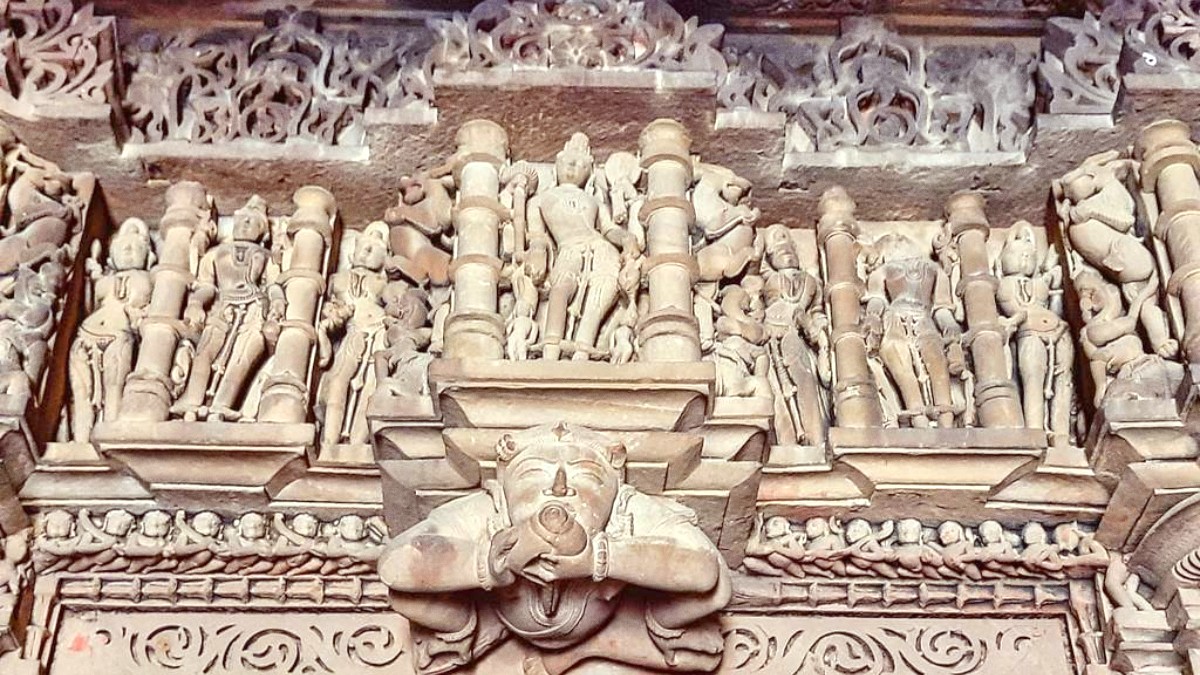
Madhya Pradesh And Chhattisgarh, India
Major Indian mobile providers like Airtel, Jio, and Vodafone Idea present good coverage in Khajuraho.
Most mid-range and luxury hotels in Khajuraho feature complimentary Wi-Fi. Budget guesthouses might also present it, sometimes for a small fee.
Hindi serves as the official language of Madhya Pradesh and the most widely spoken language in Khajuraho. Bundeli, a Hindi dialect, is spoken by many locals.
A post office is available in Khajuraho town for sending postcards or parcels. Confirm operating hours upon your arrival.
For seamless communication, consider acquiring a local SIM card upon arrival in India. This offers reliable mobile data and calling capabilities throughout your stay.
Knowing the typical operating hours for businesses and services in Khajuraho aids in planning your day.
Generally open from 9:00 AM or 10:00 AM to 8:00 PM or 9:00 PM. Some smaller shops might adjust their timings.
Typically open for lunch (12:00 PM - 3:00 PM) and dinner (7:00 PM - 10:00 PM/11:00 PM). Tourist cafes open earlier for breakfast.
Government offices and banks generally operate from 10:00 AM to 4:00 PM, Monday to Friday. Banks have reduced Saturday hours.
Banks operate from 10:00 AM to 4:00 PM on weekdays and 10:00 AM to 2:00 PM on Saturdays. They remain closed on Sundays and public holidays.
India observes numerous national and regional holidays, including Republic Day (January 26), Independence Day (August 15), and Gandhi Jayanti (October 2).
Verify operating hours for specific attractions and businesses, especially around public holidays or during the monsoon season. This step prevents unexpected closures.
Embracing local customs and etiquette enriches your experience and shows respect for the community.
The common Indian greeting, "Namaste" or "Namaskar," involves pressing palms together in front of the chest with a slight bow. Use this greeting frequently with locals.
When eating, use your right hand and avoid your left, considered unclean for such activities. Tipping, while not mandatory, garners appreciation for good service.
Photography is generally permissible at most attractions. Inside temple inner sanctums, restrictions may apply. Observe signs or inquire with staff.
Avoid overt public displays of affection. Do not point your feet at people or religious objects, and avoid stepping over someone, as feet are considered unclean.
Always seek permission before taking close-up photos of individuals. Respect their privacy and cultural norms; a simple gesture of asking goes a long way in building rapport.
Khajuraho's infrastructure presents challenges for travelers with mobility needs.
Accessibility infrastructure in Khajuraho is limited. The town and its attractions were not built with extensive accessibility in mind. Footpaths are often uneven, and ramps are rare.
No specific services or adapted tours are widely available for travelers with visual or hearing impairments. Assistance from travel companions or hired personal guides is useful.
Airport services may offer amenities that enhance travel comfort and address unexpected events.
Effective management of finances and banking access are important aspects of your trip.
Carry your medications in their original packaging, accompanied by a doctor's note. This helps prevent issues at customs and provides proper documentation for your medical supplies.